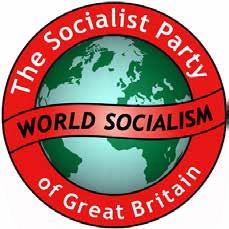Editorial: Science, Politics and Profits
As has long been predicted, the second wave of coronavirus is upon us. All along the government has claimed it has been following the science. On the face of it, this has appeared to be the case. In March, in common with most countries, the government instituted a national lockdown, where all non-essential businesses were closed and the state paid up to 80 percent of the wages of furloughed workers, to suppress the virus. It appeared for once that workers’ welfare was being put before capitalist profits. Prior to this, however, the government toyed with the idea of herd immunity, which had the advantage that businesses could stay open and trade normally, where the virus would be allowed to spread among the population. But with the prospect of millions of workers being laid up in hospital, not making profits for their employers and costing the state billions in healthcare, plus an unacceptably high death rate, the government abandoned the idea and reluctantly went for a national lockdown. The fact that it was implemented late likely led to thousands more deaths.
The decision to end the lockdown was based not on the grounds that the virus was beaten but under pressure from businesses that were feeling the squeeze. This and the lack of a functioning track and trace system have, no doubt, contributed to the recent upsurge. Also, the government urging workers to return to their places of work so as to prop up the local hospitality businesses didn’t help.
This time, the government has disregarded the scientific advice to introduce a second short term national lockdown and instead has brought in a three-tier system in England (separate arrangements have been made in Scotland, Wales and Northern Ireland) where different regions are subjected to varying levels of restrictions according to the severity of infections in their area. It is not hard to see why the government preferred this option. Keep as many businesses open as possible and keep the number of furloughed workers to a minimum. However, it has led to run-ins with some of the Northern local leaders. The most notable one is with Andy Burnham, the mayor of Greater Manchester, who initially resisted the imposition of Tier 3 restrictions in his area demanding more money to compensate workers and local businesses.
The government has also to be mindful of the costs of further restrictions. Its debt is already more than 100 percent of GDP, which is creating unease among Tory MPs and Tory supporters in the press.
Although the government couches its measures in terms of saving livelihoods and jobs, it is really capitalist profits they’re worried about. Science is not immune to this priority, so some scientists can always be induced to tell governments what they want to hear. Some scientists have thus signed the Great Barrington Agreement, which argues for ‘focused protection’ and herd-immunity, an approach the World Health Organization and others have described as dangerous, unethical and unscientific. In socialism, we would simply follow the science to beat a virus. In capitalism, nothing is ever so straightforward.
Introducing the Socialist Party
The Socialist Party advocates a society where production is freed from the  artificial constraints of profit and organised for the benefit of all on the basis of material abundance. It does not have policies to ameliorate aspects of the existing social system. It is opposed to all war.
artificial constraints of profit and organised for the benefit of all on the basis of material abundance. It does not have policies to ameliorate aspects of the existing social system. It is opposed to all war.
The Socialist Standard is the combative monthly journal of the Socialist Party, published without interruption since 1904. In the 1930s the Socialist Standard explained why capitalism would not collapse of its own accord, in response to widespread claims to the contrary, and continues to hold this view in face of the notion’s recent popularity.
Beveridge’s welfare measures of the 1940s were viewed as a reorganisation of poverty and a necessary ‘expense’ of production, and Keynesian policies designed to overcome slumps an illusion.
Today, the journal exposes as false the view that banks create money out of thin air, and explains why actions to prevent the depredation of the natural world can have limited effect and run counter to the nature of capitalism itself.
Gradualist reformers like the Labour Party believed that capitalism could be transformed through a series of social measures, but have merely become routine managers of the system.
The Bolsheviks had to be content with developing Russian capitalism under a one-party dictatorship. Both failures have given socialism a quite different — and unattractive — meaning: state ownership and control. As the Socialist Standard pointed out before both courses were followed, the results would more properly be called state capitalism.
The Socialist Party and the World Socialist Movement affirm that capitalism is incapable of meaningful change in the interests of the majority; that the basis of exploitation is the wages/money system.
The Socialist Standard is proud to have kept alive the original idea of what socialism is — a classless, stateless, wageless, moneyless society or, defined positively, a democracy in which free and equal men and women co-operate to produce the things they need to live and enjoy life, to which they have free access in accordance with the principle ‘from each according to their abilities, to each according to their needs’.
Socialist Standard November 2020

